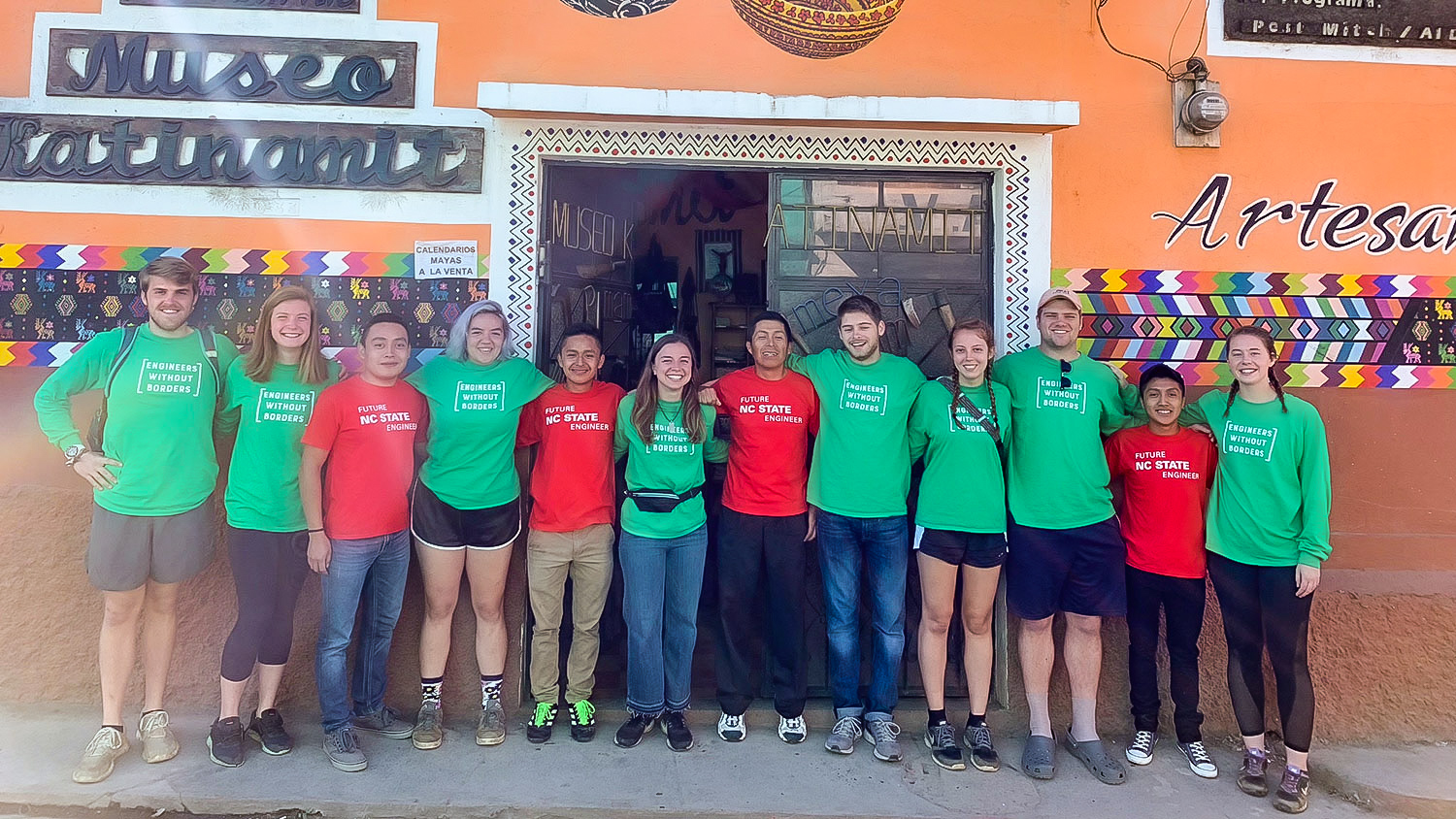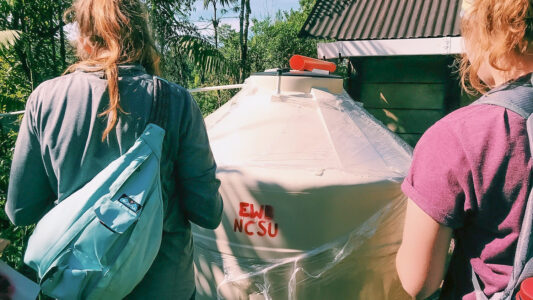Student Solutions for Clean Water

Caserio Panhux is an indigenous community of about 350 people in central Guatemala.
Back in 2017 when the NC State student chapter of Engineers Without Borders (EWB) first visited Caserio Panhux, the community did not have access to a local, clean source of potable water. Community members reported walking for hours up to three times a day to nearby streams, which had tested positive for E. coli and other harmful bacteria.
“Our goal was to find a clean source of water and free their time to empower their community,” said student Amy Butler, who is majoring in Civil Engineering.
EWB’s Guatemala Water Sources Team has been in contact with Centro Comunitario Educativo Pokomchí, a local nonprofit in Guatemala, and community members since October 2015. Over the course of three subsequent trips, NC State students created and began implementing a plan to construct rainwater catchment systems for the 60 households that expressed a need for clean, accessible water.
To support their efforts, the team applied for a grant from the NC State Sustainability Fund to cover the cost of construction supplies and materials, travel and homestay expenses, and the cost of translators.
“As future engineers we need to know how to communicate and work with groups — both in person and through grant writing,” said student Alexandra Boily, who is majoring in Chemical Engineering and Biotechnology.

water collected by the rainwater catchment systems.
The student team traveled to Caserio Panhux in August 2018, December 2018 and August 2019. Over these three trips, they constructed 50 rainwater catchment systems — each with its own set of filters and a storage tank able to hold up to 2,500 liters of water.
The team ensured community members would be able to resolve potential issues with the rainwater catchment systems, as well as easily and affordably make any repairs by leveraging local resources.
“This project gave me the opportunity to combine two spheres. I was able to use my engineering knowledge in a real-life application,” said Ramya Balasubramanian, who is majoring in Chemical Engineering. “We’re always working with the households receiving the system to make sure we’re solving their needs.”
Unable to travel this summer due to COVID-19, the Guatemala Water Sources Team is providing virtual support to 8 families, who are constructing their own rainwater catchment systems. The local school is also expanding its current system to be accessible from the school’s kitchen.
The student team plans to return in summer 2021 for a final implementation trip.